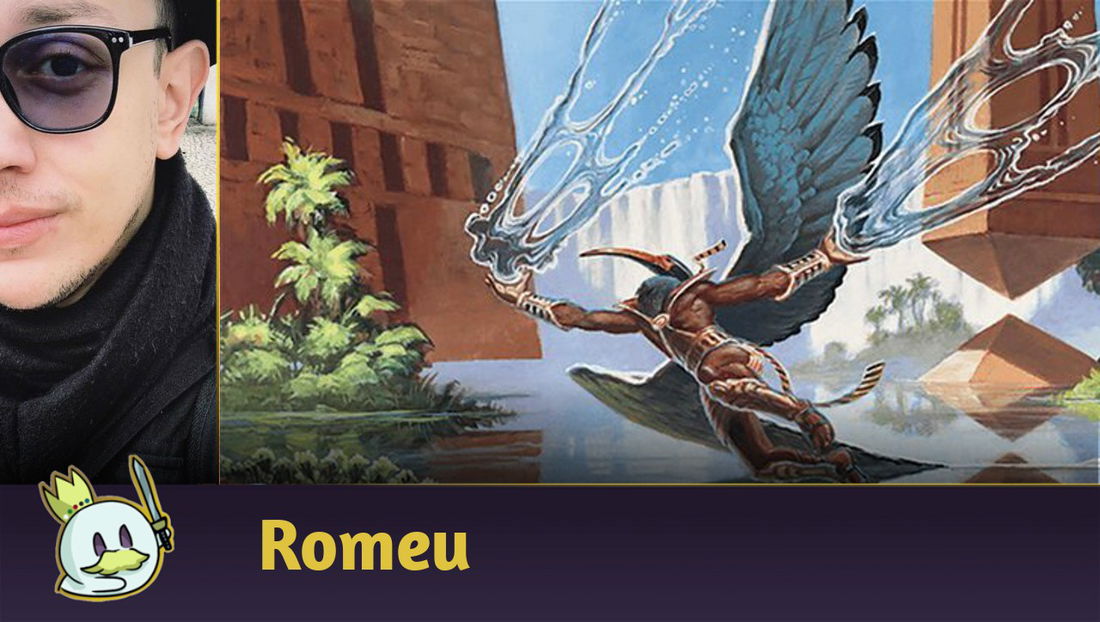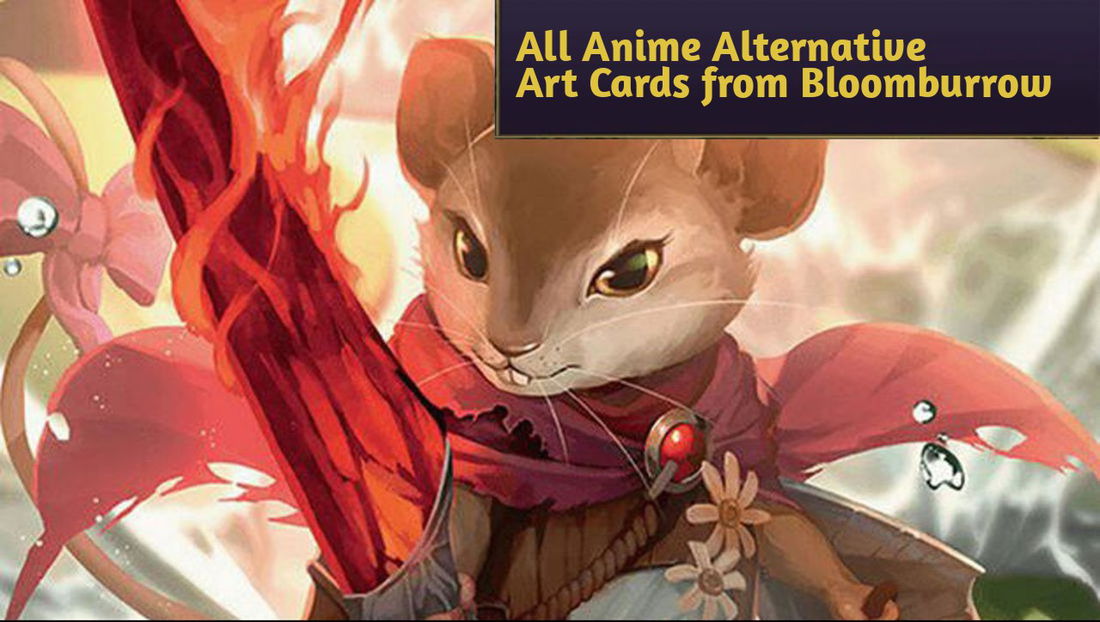Introdução
Hey there!
In today's article, we will review the mechanics and rules updates that come with the new edition, Bloomburrow, and with that we will be ready for this weekend's pre-release events. Let's go!
Atualizações
End of Portuguese printing
Starting with a somewhat nostalgic observation… Bloomburrow marks the end of Portuguese translations for the physical game. If you play MtG Arena, the cards will continue to be translated there, but if you participate in a pre-release event in store here in Brazil, you will have access (primarily) to products in English.
“Enters the battlefield” becomes “enters”
Another update, starting in Bloomburrow the term “enters the battlefield” becomes just “enters” - a way of simplifying/reducing the text of the cards, but does not affect in any way the rules of the game - just a "templating" update.
Understanding the new Mechanics
Gifts

“Gifts” are optional additional costs when you cast certain spells. If you chose to gift an opponent, you will gain a bonus when the spell resolves.
Important: when the spell with “Gift” goes on the stack, you already need to announce whether or not you are going to gift an opponent, and if there is more than one opponent (hello, Commander!) you will also need to announce WHO will be gifted. In other words, the spell already goes into the stack with all the “public” information about whether there will be a gift, and who will receive the gift.
Also note that the “Gift” is part of the spell's resolution effects, so if the spell does not resolve for any reason (for example, because it was countered or lost its targets), the Gift will NOT be granted.
Offspring

“Offspring”, besides being a really cool band, is also another new mechanic for Bloomburrow. Similar to Gift, it is an additional cost that you pay when casting creatures with the ability, and if you do, when the creature enters, an exact token copy of the creature will be created, except for having base power/resistance 1/1.
Again, you will already know the moment the creature is on the stack whether the additional cost was paid or not (although the effects only occur when the creature actually enters). It's worth remembering that “Offspring” doesn't depend on the original creature remaining on the field - if, in response to the triggered ability, the original creature is killed, the 1/1 copy is created normally.
Forage

“Forage” is a new keyword that indicates one action (of a possible two): either Sacrifice a Food or Exile 3 cards from the graveyard.
Remember that since “Forage” is a cost, it cannot be responded to or interfered with, for example by exiling cards from the graveyard in response or destroying Food to stop Forage.
Expend

“Expend” is a new keyword, indicating that when you have spent a certain amount of mana in a turn to cast spells, the card's “Expend” ability will trigger.
Note that “Expend” is specifically tied to the amount of mana effectively spent - that is, casting a spell without paying mana will contribute nothing to the “Expend” count. Also note that cards that reduce or increase spell costs (for example, Thalia, Guardian of Thraben) can, indeed, affect “Expend” - for example, if you have an “Expend 4” on the table, cast a 3-mana noncreature spell with Thalia on the field, you will end up spending 4 mana in total to cast spells, and so “Expend” will happen!
One last reminder: “Expend” doesn’t have to be exact! Again, if you have an “Expend 4” on the table and cast a 5-mana spell, you will fulfill the 4 mana condition. Just be careful with the exact text; “Expend X" does not mean “for each mana spent”, but rather a “threshold of X mana in one turn” - that is, “Expend” will happen at most once per turn, if the condition is met.
Valiant

For those who know the “Heroic” ability (hello, Pauper!), “Valiant” is a very interesting variation. Basically, when a creature with “Valiant” is targeted by a spell or ability you control for the first time in a turn, it will receive a certain bonus.
“Valiant”, then, checks not only if the creature is targeted by spells, but also abilities! On the other hand, only the first time per turn will trigger “Valiant”. Remember that “Valiant” always triggers in response to what targeted the creature, so it will resolve BEFORE the spell/ability on the stack.
Pawprints

Finally, we will highlight the new cycle of modal spells using something new: Pawprints.
When you cast a spell with Pawprints, you have a series of choices to make, which must not exceed the indicated number of Pawprints.
You don't necessarily have to spend all your Pawprints if you don't want to - you can activate just some modes (even the same mode more than once) and have "unused" Pawprints. However, Pawprints do not “stack”, so there is no way for you to use "left over" Pawprints in another future spell that uses Pawprints as well.
Also, remember that the effects happen is in the order they are on the card with Pawprints - so you always resolve the 1-Pawprint first, then the 2-Pawprint, and lastly the 3-Pawprint. There is no priority window between these effects, so when a spell starts to resolve, all effects will happen in order, and only after it ends resolving will players receive priority again.
Lastly, remember that like any modal spell, you must already choose the modes when you put the spell on the stack - that is, everyone will know which modes were chosen (as well as the targets chosen, if the mode has this requirement) before the magic resolves.
Conclusion
Let's wrap it up!
Bloomburrow brought a lot of new things, variations of old mechanics, and even updated terminologies! And, for the Standard format, it also brings a welcome rotation.
I hope the article helped and that you have great success with your pre-release this weekend!
See you next time!













— Commenti 0
, Reazioni 1
Diventa il primo a commentare